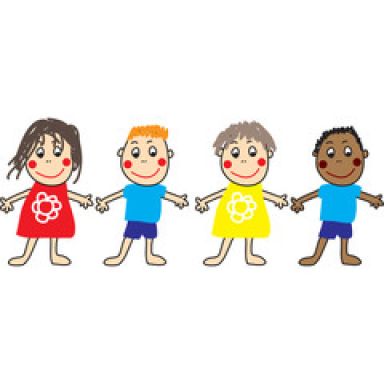Childhood and teenage are an appropriate age to set the stage for molding a well behaved and well-mannered individual. Imparting etiquette training lessons equips young with skills that benefit them for a lifetime. Whether you are teacher looking to teach social skills to your students, or a parent looking to impart social skills lessons to your ward, a social skills training certification program is just the right choice for you. Through this program, you are equipped with necessary skills and know-how to train young people dos and don’ts that help them a lifetime.

An etiquette certification program helps you cover the following important aspects of children’s and teens social skills with ease. This is made possible through lessons, word-for-word scripts, intelligent dialogues, creative games, and other activities that reinforce learning in them.
- Empathy, compassion, kindness – as a social skills trainer, you help children and teenagers understand the importance of empathy and compassion towards fellow beings. You also teach them the need to be kind and courteous towards friends, family, and elders.
- Deference and respect – It is natural for children and teenagers to have likes and dislikes for different things. You help them voice their opinion and express deference, while being polite and amicable. You also teach them to respect themselves and others, be they family, friends, peers, teachers, and so on.
- Tact, handling mistakes, and making apologies – it is human to err, and kids and teens to commit mistakes many a time. However, what becomes important is to train them to handle mistakes tactfully. As a trainer, you help them be honest individuals who own up their mistakes, and teach them to apologize while maintaining their dignity and being respectful to others.
- Forgiving and forgetting – alongside making apologies for one’s mistakes, it is also important to teach little ones the need to forgive and forget. You train them to forgive other’s mistakes and accept their apologies when necessary. You also train them to get past bad or unfortunate experiences, which otherwise might affect their abilities and character.
- Saying please, thank you and you’re welcome – Politeness is one quality that needs to be inculcated from a young age and reinforced as children grow up. Through an etiquette training program, you teach little ones and teenagers to ask for favors politely, and show gratitude and appreciation in appropriate instances.
- Curbing rude behavior – Rude and aggressive behavior of kids and teens worries most parents. As a certified trainer or teacher, you help your students behave courteously and refrain from rude and disrespectful behavior to peers as well as elders.
- Dating responsibly – This is an area that you help teenagers exclusively with. You help them appreciate relationships, and make them understand the etiquettes of dating, and the dos and don’ts that come with it.
- Sharing, gift giving, and receiving – from tiny tots to adults, everyone loves gifts. Sharing isn’t a quality that comes to many, especially children. By being a social skills trainer, you inculcate your children and teens with a sharing mentality, and encourage them to give gifts, and accept them with gratitude and appreciation.
- Acceptable group behavior – children and teenagers, many a time, are exposed to group activities in school and outside. Through an etiquette training program, you instill the qualities of a good team player in them – respecting teammates and team leaders, function unitedly, helping team members, and so on.
- Table manners, good hygiene, appropriate attire – another area of interest that you train young ones on is table manners. You teach them basic dining etiquettes including the use of different items, eating properly, serving oneself and others etc. You also inculcate practices for good personal and public hygiene, and give them lessons on appropriate attire for different occasions.
- Effective verbal and non-verbal communication – communication is a skill that matters not just to adults, but to children and teenagers as well. Through social skills training programs, you help these young minds inculcate good communication practices and help them converse effectively through verbal and non-verbal cues. You also train them to be good listeners, which in turn garners them liking and respect from people around.
- Online safety and accountability – children and teenagers today use mobile phones and web based devices as frequently as adults. Hence it becomes important to safeguard them from online threats. As a trainer, you teach your students to use these devices with caution, and in a responsible manner. You also teach them etiquettes in using social media and online communication channels.
Through this program, you are equipped with necessary skills and know-how to teach social skills classes to children and teens about the dos and don’ts that help them a lifetime.
Leave a Reply